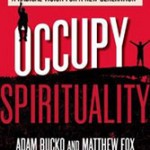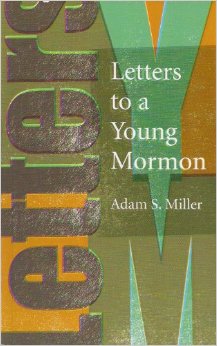Editor’s Note: This post is part of Queer Theology Syncroblog at the site Queer Theology.
 I was asked by Chris Henrichsen to post a presentation I recently gave on relating queer thought to how we read the Bible. Our campus ministry has a discussion group which has tackled this topic for this coming semester.
I was asked by Chris Henrichsen to post a presentation I recently gave on relating queer thought to how we read the Bible. Our campus ministry has a discussion group which has tackled this topic for this coming semester.
The follows is a rough outline of that effort
“Nearly all the wisdom which we possess, that is to say, true and sound wisdom, consists of two parts: the knowledge of God and of ourselves. But, while joined by many bonds, which one precedes and brings forth the other, is not easy to discern.”- John Calvin, the Institutes of the Christian Religion
Intro:
To begin to ask questions relating to who we are, in this case engaging queer thought to the Bible is to engage in the work of theological reflection. Merriam Webster claims that theology is “the study of religious faith, practice, and experience; especially the study of God and of God’s relation to the world”
Thus it is not a one sided affair. The world, human experience and our best knowledge ends up informing our reading of our faith traditions. And our faith traditions and scriptures provide a framework for discussion and dialog. Both end up informing each other. So to ask questions of what it means to be human, who we are, what are appropriate aims in life is to enter into that discussion with a range of sources, including scripture.
Reading Scripture:
Given those questions, this is not going to solely revolve around the question of what the biblical authors historically meant about this topic. Rather it’s a question of how can we relate to the Bible as scripture, that is, as something which can inform our discussions of how we can live today.
That is, a text becomes scripture, when it moves to application today by communities invested in being in dialogue with the text. And we do this because we believe that such a text has in it the possibilities of a well lived life.
“Whoever, therefore thinks that he understands divine Scriptures or any part of them so that it does not build the double love of God and of our neighbor does not understand it at all. Whoever finds a lesson there useful to the building of charity, even though he has not said what the author may be shown to have intended in that place, has not been deceived nor is he lying in any way.”- Augustine, On Christian Doctrine
This is an interpretative principle in reading a sacred text that, in this case, I think is a good one. The Bible is a diverse text, many authors, many periods of time, and many perspectives. To try to get a sense of the whole is to draw from the Bible a primary principle by which it can be read and understood.
For Rosemary Radford Reuther, that principle is; what promotes the well being of women? For Robert Mesle, it’s how does our reading promote the well being of children? For Augustine, it is how our reading promotes love of God and neighbor. For Martin Luther, it is how our reading promotes the principle of salvation by grace, apart from the works of the law.
Some of this can be used in interpreting any and every story in the Bible. Sometimes it is a way to select a canon within the canon that highlights the central message and hope found in scripture by which everything else is judged accordingly. That principle, whatever it may be, helps guide us in picking out what passages reflect what we believe scripture can add to human life today.
Queer Thought
Queer is a multi-faceted word that is used in different ways and means different things to different people. Here are some ways that queer is used today:
Queer (adj.): attracted to people of many genders. Although dominant culture tends to dictate that there are only two genders, gender is actually far more complex. Queer can be a label claimed by a person who is attracted to men, women, genderqueer people, and/or other gender nonconforming people.
Queer (adj.): not fitting cultural norms around sexuality and/or gender identity/expression. Similarly to the above, queer can be a label claimed by a person who feels that they personally don’t fit into dominant norms, due to their own gender identity/expression, their sexual practices, their relationship style, etc.
Queer (adj.): non-heterosexual
Queer is sometimes used as an umbrella term to refer to all people with non-heterosexual sexual orientations or all people who are marginalized on the basis of sexual orientation and or gender identity
Queer (adj.): transgressive, anti-assimilation, challenging of the status quo. Many people claim the label queer as a badge of honor that has a radical, political edge. UU seminarian Elizabeth Nguyen has preached: “Queer, for many folks, is about resistance—resisting dominant culture’s ideas of ‘normal,’ rejoicing in transgression, celebrating the margins, reveling in difference, blessing ourselves.”
In this there is an idea that our gender identities and what counts as “normal” for sexual orientation is a product of social construction. That is, society has told us and re-enforced in us, what is considered the norm. And one way we can know that this is so is to discover what happens when you go against the norm. If a boy wears something considered “feminine”, if a girl does something consider “tomboyish”, if someone’s expectation of gender is not followed by someone who is transgender, the repercussions are real. Thus:
Queer (n.): an epithet or slur for someone perceived to be gay or lesbian
Queer is still sometimes used as a derogatory term. Many people who have had the word queer used against them.
Reading the Bible
To bring the Bible into conversation with queer thought then is to discern what the Bible says to us and what we bring to the Bible as a set of concerns. Because the Bible is diverse, what readings you get will determine what follows:
Women:
I do not permit a woman to teach or to assume authority over a man; she must be quiet. – 1 Timothy 2:12
There is neither Jew nor Gentile, neither slave nor free, nor is there male and female, for you are all one in Christ Jesus.- Galatians 3:28
Transgender:
No one whose testicles are crushed or whose penis is cut off shall be admitted to the assembly of the Lord- Deuteronomy 23:1
But Jesus said…there are eunuchs who have been so from birth…and there are eunuchs who have made themselves eunuchs for the sake of the kingdom of heaven. – Matthew 19:11-12
Sexual Orientation:
Neither the sexually immoral…nor homosexual offenders…will inherit the kingdom of God. – 1 Corinthians 6:9
For I am convinced that neither death nor life…neither the present nor the future, nor any powers, neither height or depth, nor anything else in all creation, will be able to separate us from the love of God…- Romans 8:38, 39
Foreigners:
And he said to her “Let the children of Israel first be fed, for it is not right to take the children’s bread and throw it to the dogs”- Mark 7:27b
From one ancestor God made all nations to inhabit the whole earth…so they would search for God…though indeed God is not far from each one of us. For in God we live and move and have our being, as even some of your own poets have said “For we too are God’s offspring” -Acts 17:26-27
My point is not that the Bible contradicts, because given the diversity of audiences, authors, contexts; we should expect to find passages that have different sentiments. The point is what scripture we are using as normative? What scriptures highlight what we believe reflects the best in how we might live today? What fits our principle so that this text becomes life to us?
In that I want to encourage people to take responsibility for what texts are lifted up. It would be hard to simply say “the Bible says” Whatever texts you use and for what purpose, to the degree that it has real life affects on people and their lives, is a reflection of a decision you’ve made. In that ownership, morally and otherwise, over how the Bible is used becomes paramount.
Queering the Bible
There may be any number of strategies in queering the Bible.
Re-interpret texts that have been used against gay and lesbians.
This is partially possible when we recognize that terms like homosexual, heterosexual, our current understandings of gender simply don’t find a home in the original languages and contexts from which the Bible arose. For instance 1 Corinthians 9:13, until the 20th century, there would never have been a Bible with the term “homosexual offenders” Rather 2 words are used to describe male/boy prostitution in the first century.
Discover texts that promote well being and life for all, including queer people.
1 Corinthians 13, the love passage, provides us a life giving model, for instance, in relating to people regardless of sexual orientation. “Love is patient, love is kind. It does not envy, it does not boast, it is not proud. It does not dishonor others, it is not self-seeking, it is not easily angered, it keeps no record of wrongs. Love does not delight in evil but rejoices with the truth. It always protects, always trusts, always hopes, and always perseveres.”
How do we honor queer people in our lives? And not shame them? How can we as queer people keep these values in all who we relate to?
Reject and critique texts that lend themselves to oppression
Some texts are themselves not to be redeemed, they are “texts of terror” as Bible scholar, Phyllis Trible, calls them. Rules around raping foreign women in the conquest stories, women as “whores” which is not an uncommon metaphor in the Bible, and so forth should face judgement and critique. Not by only us but also by the best of what scripture indicates to us. Their value, in our rejection of them, may be the conversations stirred as a result. That too is a function of scripture, conversation.
Discover our own stories in the Bible
The friendship and love between Jonathan and David. “Your love for me was wonderful, more wonderful than that of women.” 1 Samuel 1:26. That doesn’t mean David and Jonathan were gay. It’s not a historical question, which couldn’t be answered either way. But the pattern of relating we find can provide parallels in the love of queer people. Especially in a society that doesn’t recognize the reality and life giving character of friendships and love between two people of the same gender. The story of Ruth and Naomi has much the same character in the book of Ruth as well as the story of Jesus and John in the Gospel of John.
Discover where boundaries, which are assumed to be rigid are opened up in the Bible.
Jesus speaks to and relates to women, the disabled, prostitutes; all categories of people considered by some (then and now) to be outcasts. John 4
Jesus highlights chosen family over biological families. Matthew 12:48-50
Women are often portrayed as leaders, like Deborah a Jude of Israel, Judges 4, 5 Miriam in Exodus 15
Jacob, takes on “feminine” roles and becomes the one of the forefathers of Israel. Genesis 27
Eunuchs, those who can’t have children or marry and therefore are shut out of economic and social life in Israel are continually lifted up such as in Isaiah 56:3b-5
This is what the Lord says:
“And let no eunuch complain, “I am only a dry tree.” For this is what the Lord says:” To the eunuchs who keep my Sabbaths, who choose what pleases me and hold fast to my covenant—to them I will give within my temple and its walls a memorial and a name better than sons and daughters; I will give them an everlasting name that will endure forever.”
Concluding Thoughts, Questions
-How has gender norms been policed in your experience?
-How has the Bible been used to support certain understandings of gender, sexual orientation in your experience? How has it challenged it?
-What are your thoughts towards this approach to the Bible?
-Are there other ways to read the Bible that could be life giving for queer people?
-Other ideas, suggestions?
Bibliography
Is the Homosexual My Neighbor? Revised and Updated: Positive Christian Response
by Letha Dawson Scanzoni , Virginia Ramey Mollenkott
Radical Love: An Introduction to Queer Theology by Patrick S. Cheng
Sensuous Spirituality: Out from Fundamentalism Paperback – July 1, 1992
by Virginia Ramey, Ph.D Mollenkott (Author)
Sex and the Church: Gender, Homosexuality, and the Transformation of Christian Ethics by Kathy Rudy (Author)
The 8 Clobber Passages:
http://www.progressivechristianalliance.org/Blog/articles/clobbering-the-clobber-passages/
Welcoming Resources
http://www.welcomingresources.org/












